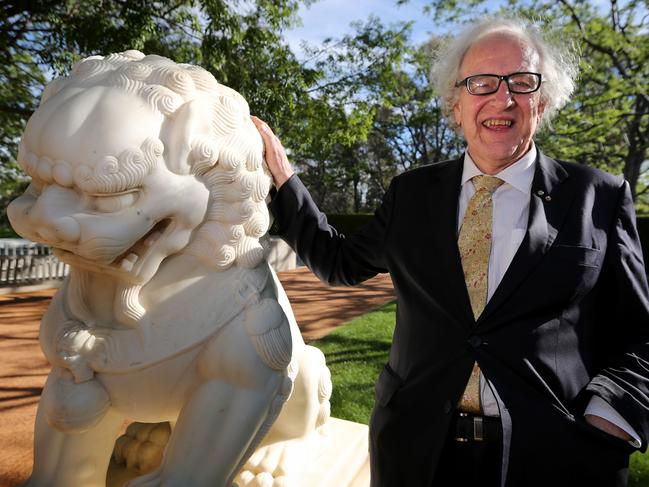Boycotting Chinese businesses and products will do more harm than good to Australia
Hitting back against China through boycotts is ‘self-harm’ and has no impact on their economy even if it provides a ‘feel-good moment’ for Australians, experts say.

Companies
Don't miss out on the headlines from Companies. Followed categories will be added to My News.
Calls to boycott Chinese goods and businesses are “downright silly’ and could seriously backfire on Australia as they would have no impact on the Asian powerhouse, experts have said.
China tightened the screws on Australian exporters on Wednesday when lamb was added to a long list of Australian products sanctioned by Beijing, with cotton expected to be next.
In response, residents and businesses began to discuss boycotting Chinese-made products, in calls that have only grown louder.
But University of Sydney Business School professor Hans Hendrischke says Australia is a small trading partner and no boycott could harm China – it could only harm us.

At best, he said it’s a ‘feel-good’ moment for consumers who would feel empowered by avoiding Chinese imports or not purchasing from locally Chinese-owned businesses such as wineries.
“It would really only have an impact in a political sense, domestically, in that we would feel we have some agency,” Mr Hendrischke told NCA NewsWire.
“Otherwise, it would have no economic impact on China because there is total asymmetry, they being our primary client … and we are one of their global clients, and a small one for that matter, for all the standard goods they export across the world.
“If we bought less Chinese goods it wouldn’t make a difference because of the lack of balance … because we are totally exposed.”

Griffith University Emeritus Professor Colin Mackerras criticised any call for boycotts, claiming they would cause more harm than good.
“We should not start boycotting Chinese goods and even less boycotting Chinese-owned Australian producers of wine,” Griffith Asia Institute member said.
“Deliberately avoiding Chinese-made products is like self-harm, and I believe is downright silly.”
The idea to boycott Chinese products came after Kennards’ Self Storage CEO Sam Kennard put out a call to arms for Australian businesses to fight back and drop suppliers from the Asian superpower.
On Thursday, it was revealed more than 40 Australian wineries are Chinese-owned, leading to further calls to boycott their wines.
Mr Hendrischke said Australia was not in a trade war with China, unlike the USA, and needed to act calmly and diversify our markets without harming its current export chains.

He said in US, the growth of Chinese industry and IT is threatening the competitiveness of American technology – so they have a reason and strategy to impose restrictions.
“About 50 per cent of our export goods in some months are actually going to China and we want to change that and diversify – that is primarily looking for new markets, not closing existing markets,” he said.
“We don’t really have a strategy like the US has in the sense it wants to block China,” he explained, noting Australia’s plan was more to “slowly move away from China”.
“There may be more economic sanctions (against Australia) and they could pop up anywhere and across every industry in some way,” he said.
Mr Mackerras said China was not attempting to subvert Australia’s democracy, but was seeking respect.
He said ironically, many Australians seemed to believe it is China not showing them respect.
“The situation we’ve got to now is that China asks for respect, and Australia hardly notices that, believing it’s China that’s denying us respect,’ he said.
“This has now got to such a low ebb that it is going to take time to repair.”
Originally published as Boycotting Chinese businesses and products will do more harm than good to Australia


